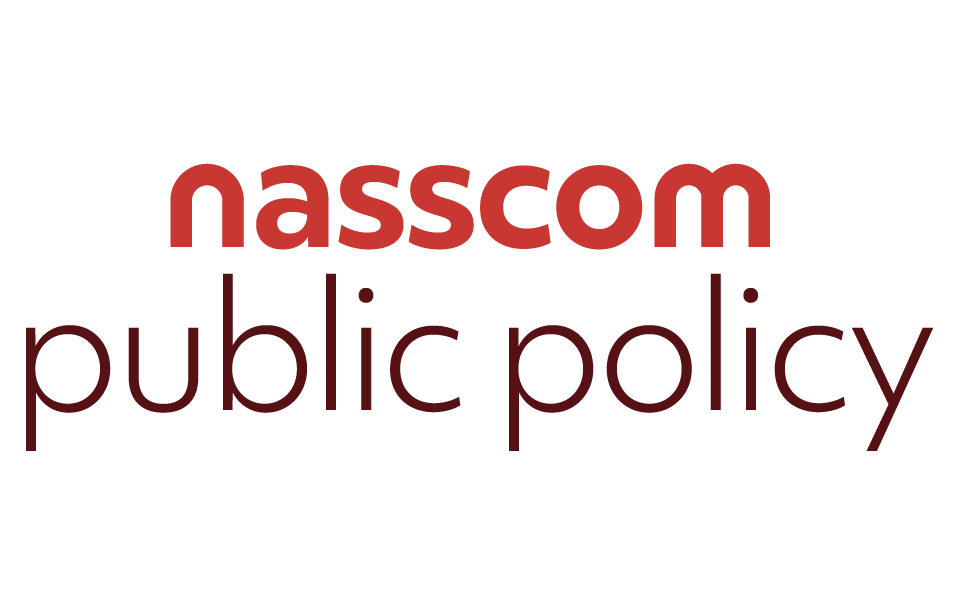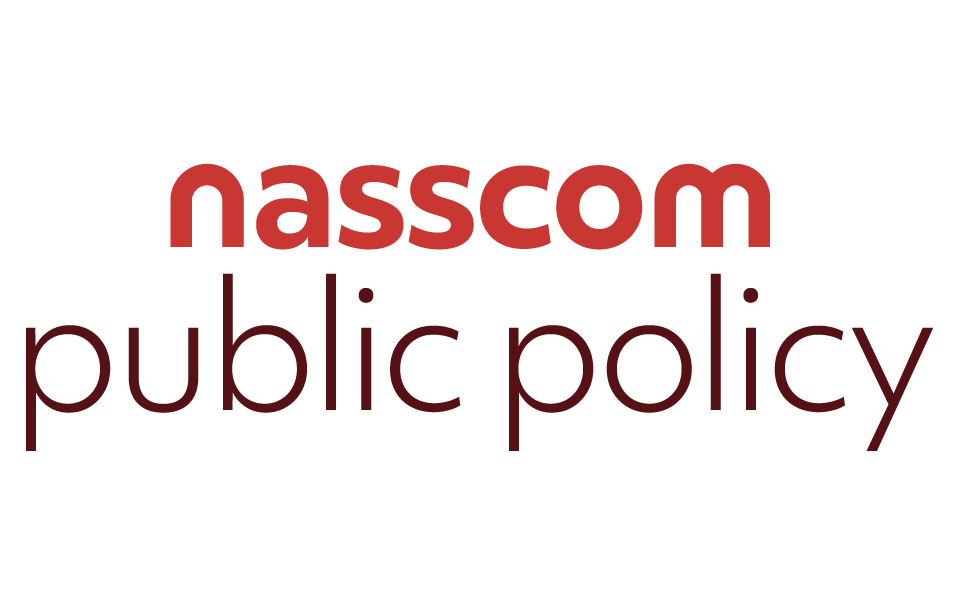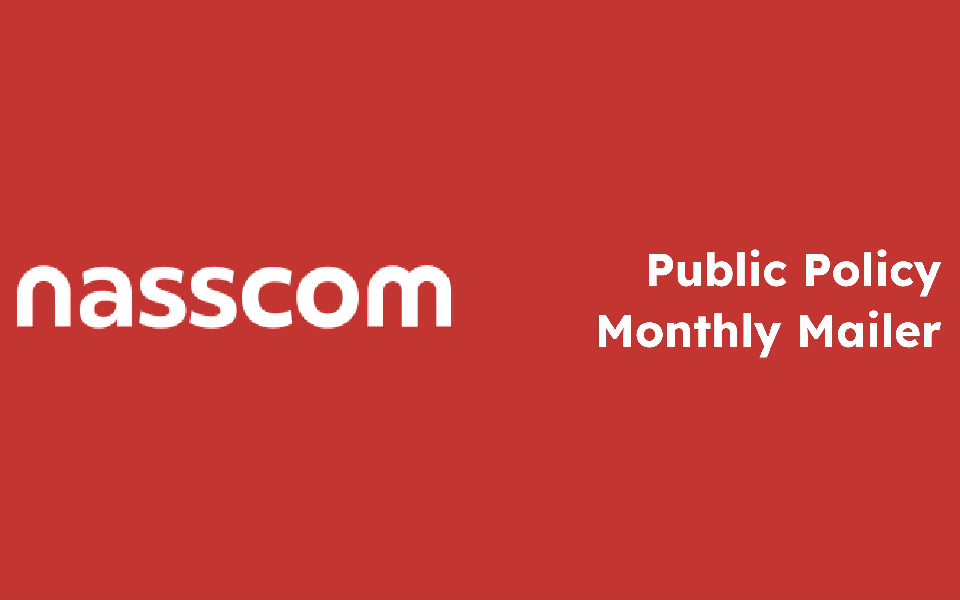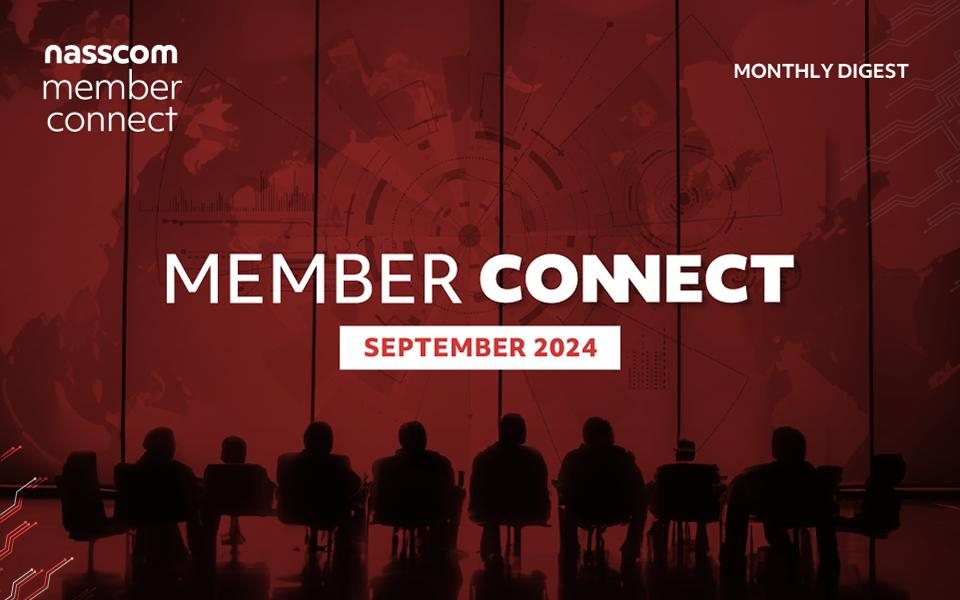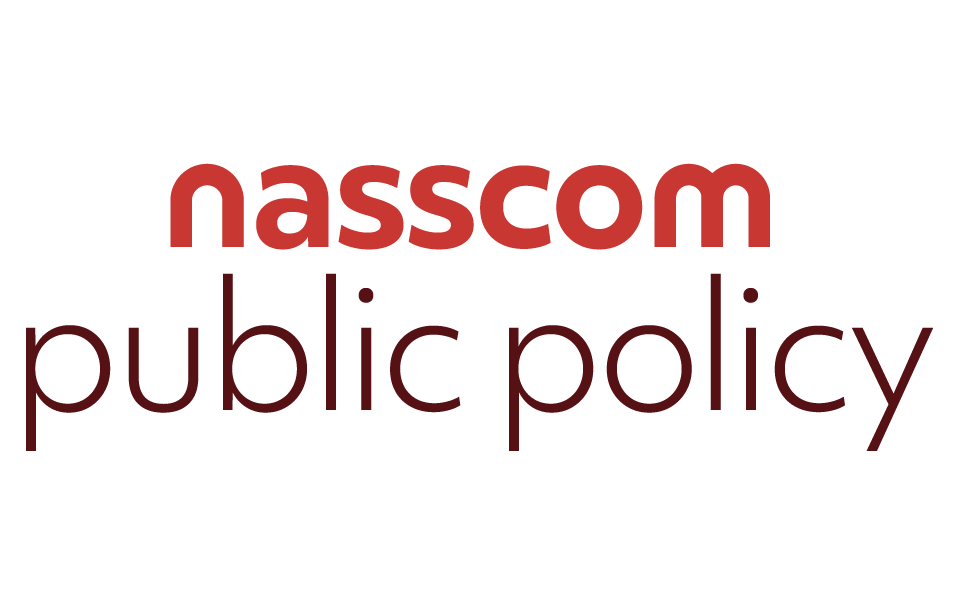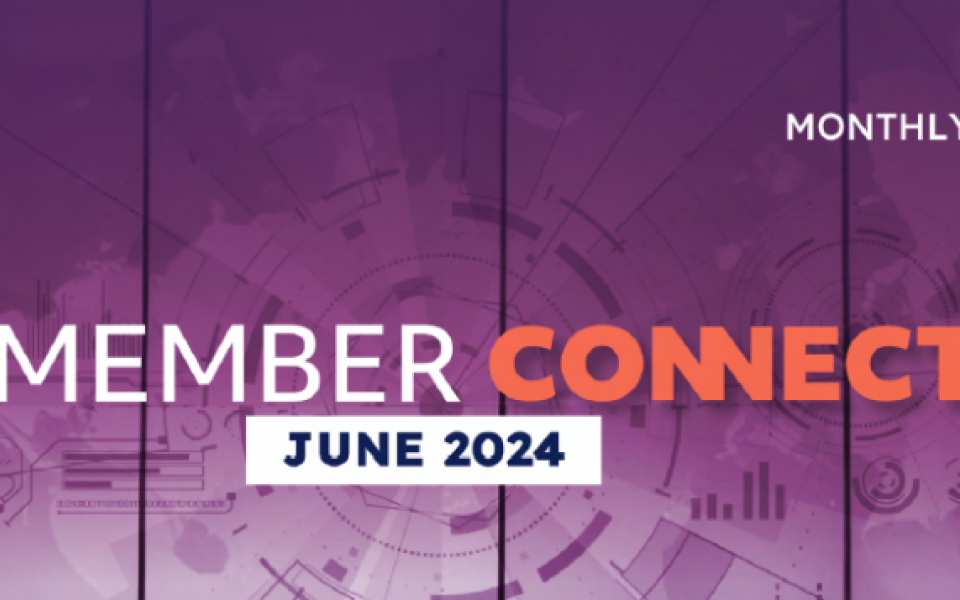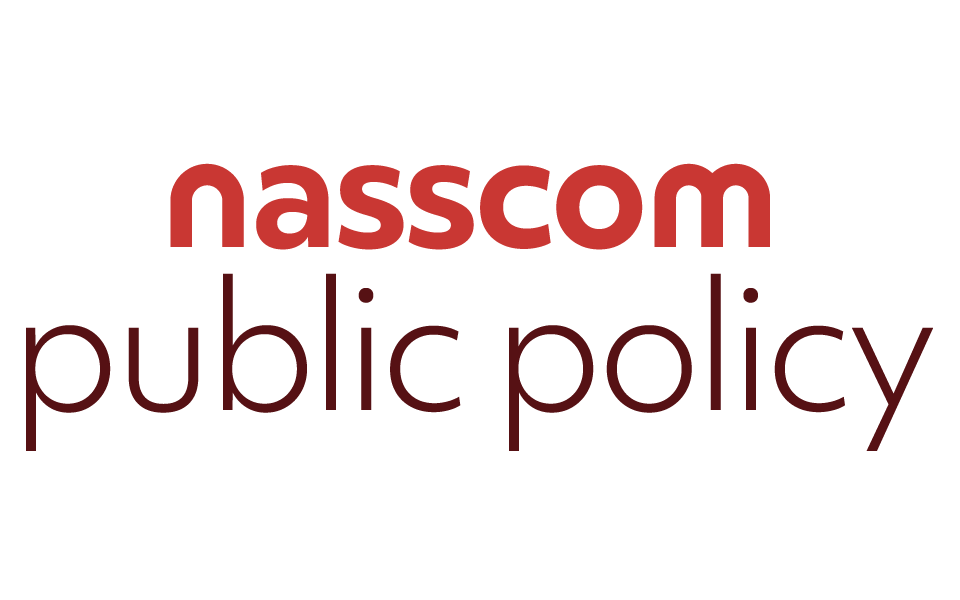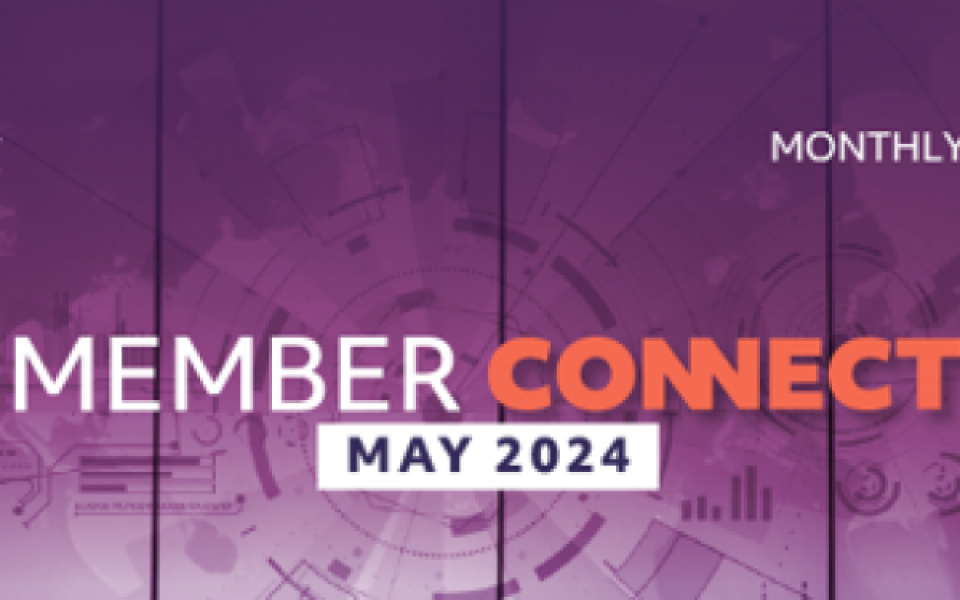 |
 |
| |
| |
| Data governance: Meetings of the Joint Parliamentary Committee on Personal Data Protection Bill |
| |
| As part of its consultations, the Joint Parliamentary Committee (JPC) on Personal Data Protection Bill (PDP Bill) met some of the State Governments and a varied group of stakeholders including IT industry representatives. NASSCOM participated in one such discussion where the JPC interacted with the Government of Karnataka. |
| |
| NASSCOM's feedback to the JPC focussed on suggestions to (i) avoid measures which increase compliance without offering additional protection to the consumers and (ii) improve the compatibility of the PDP Bill with laws in other jurisdictions which are important for India's growing global digital trade. Earlier in February 2020, NASSCOM was invited to make a detailed presentation to the JPC. NASSCOM's position on the PDP Bill is available here. |
| |
| As has been reported (here, here) the JPC is expected to finalise its report soon and thereafter the Parliament is expected to consider an updated PDP Bill for enactment. |
| |
|
|
|
|
 |
| |
| |
| GST: Submission to request a relaxation for realisation of export proceeds |
| |
Under Central Goods and Services Tax Rules, 2017 (CGST Rules), exporter exporting services without paying integrated tax is required to furnish letter of undertaking. Further, the supplier should receive payments in foreign exchange, irrespective of date of such receipt, to qualify as an exporter. Reserve Bank of India's (RBI) Master Direction on Export of Goods and Services also require service exporter to realise export proceeds within prescribed timelines, which can be extended by Authorised Dealer bank.
However, CGST Rules separately require a company to seek extension from the Commissioner, even if permission for extension has been sought from RBI. This duplication of effort adds to compliance burden on companies. To address this, NASSCOM has made a submission to GST officials to recommend that extension received from RBI should also considered for the purpose of CGST Rules. |
| |
| Read More |
| |
| |
| |
| MCA: Submission on clarifying new Corporate Social Responsibility (CSR) obligations |
| |
| NASSCOM made a submission to the Ministry of Corporate Affairs (MCA) to highlight issues requiring intervention under the Companies (Corporate Social Responsibility) Policy (Amendment) Rules of 2021 (2021 CSR Rules). These include: (1) allowing companies to provide web link to access impact assessment reports on the website; (2) requiring companies to keep CSR Annual Plan for perusal of CSR committee rather than directly under the Board; and (3) relaxing the time period for spending the unspent CSR amount. |
| |
| Read More |
| |
| |
| |
| UK Information Commissioner's Office (ICO): Submission to consultation on international data transfers |
| |
| NASSCOM made a submission in response to a consultation paper by the ICO on the future of international data transfers regime of the UK. The submission offered guidance on the interpretation of territorial scope of current law and on the need to clarify the concept of a transfer, especially considering the functioning of Indian data processors and the use of methods to remotely access overseas data. NASSCOM also welcomed new transfer tools, such as the International Data Transfer Agreement, that have been suggested by the ICO and offered suggestions on how to make it more practical. |
| |
| Read More |
| |
| |
| |
| DoT: Representation on regulatory treatment of contact centre services |
| |
| NASSCOM made a representation to the Department of Telecommunications (DoT) seeking clarity on the regulatory framework for PSTN-based Hosted Contact Centre Services and Contact Centre Services. The representation highlighted that these are value-added services that are offered on top of telecom resources like those offered by the entities falling in the Other Service Providers (OSP) category and therefore, should not be characterised as licensed activities. We suggested that drawing from recent OSP reforms, a simple regulatory framework should be introduced to govern such services. For more information, kindly contact deepak@nasscom.in. |
| |
| |
| |
| MoCA: Representation on the Production-Linked Incentive (PLI) Scheme for drones |
| |
| The Ministry of Civil Aviation (MoCA) recently approved the PLI scheme for drones and drone components. This follows the recent reforms introduced via the new Drone Rules of 2021. NASSCOM made a representation to the MoCA highlighting certain concerns with the PLI scheme including the need to clarify eligibility norms for new investors and software developers, the need for a self-certification mechanism for drone manufacturers, and the need to appoint and operationalise the project management agency that will implement the PLI scheme. |
| |
| Read More |
| |
| |
| |
| Government of Karnataka: Representation on recent ban on online gaming |
| |
| The Government of Karnataka (GoK) recently passed the Karnataka Police (Amendment) Act which bans gaming through internet and mobile applications and introduces an enhanced punishment. NASSCOM made a representation to the GoK to highlight the unintended impact of this ban on the growth of gaming companies in Karnataka and on the reputation of the state as a hub for innovation and start-ups. The representation recommended delineating games of skill from games of chance and introducing an exhaustive definition of gaming. |
| |
| Read More |
| |
| |
| |
| MeitY: Representation on long-term Work from home (WFH) for Special Economic Zone (SEZ) units |
| |
| Continuing our engagement with the Government to seek clarity on long-term WFH for units in SEZs, NASSCOM made a representation to the Ministry of Electronics and Information Technology (MeitY) highlighting the evolving business models in the tech industry and the challenges being faced due to lack of certainty related to WFH arrangements beyond the pandemic period. The representation seeks MeitY's support on this matter. We also made a representation to the SEEPZ-SEZ Authority in Maharashtra, requesting that industry be allowed to continue with WFH arrangements for as long as the State Government or the National Disaster Management Authority continue to issue orders on the management of the COVID-19 pandemic and till a definite framework on long-term WFH is finalised by the Ministry of Commerce and Industry. For more information, kindly contact deepak@nasscom.in. |
| |
|
|
|
|
 |
| |
| |
| ASCON Summit 2021: Meeting with the Minister of Commerce and Industry |
| |
| NASSCOM led the industry engagement of the IT-BPM sector at the ASCON summit 2021, which was organised by the Confederation of Indian Industry. At the summit, we held a sectoral roundtable with industry members to discuss key issues being faced by the sector and to arrive at the recommendations to be made to the Government. Post the roundtable, we made a presentation of the key recommendations to the Minister of Commerce and Industry. The presentation and submissions together covered various suggestions to improve investment, promote R&D, create jobs and reduce the cost of doing business in India. |
| |
| Read More |
| |
| |
| |
|
|
|
|
|
| |
| |
| National Health Authority (NHA): Meeting on the Unified Health Interface (UHI) |
| |
| NASSCOM, along with industry members, had a meeting with the officials of NHA to discuss our feedback on the consultation paper on the UHI. We discussed several issues, including the UHI's possible impact on the quality of services being provided by end-user applications (EUAs), innovation by health service providers and the level of competition in the sector. We also made certain suggestions to address these concerns, including providing a safe harbour for EUAs, introducing an assisted model for the non tech-savvy users and incentivising the adoption of Electronic Health Records by Health Service Providers. |
| |
| Read More |
| |
| |
| |
|
|
|
|
|
| |
| |
| Data Centres: Industry consultation to identify key policy needs |
| |
| NASSCOM organised a meeting with the industry to discuss the emerging policy issues faced by the data centre industry in India and to evolve a plan for policy advocacy with the Central and State Governments. Key suggestions by the industry leaders focussed on engaging strongly with key state governments and relevant Central Government ministries, leveraging relationships with other industry associations and conducting an in-depth study on emerging trends. |
| |
| Read More |
| |
| |
| |
|
|
|
|
|
| |
| Department of Consumer Affairs (DoCA): Discussion on the Consumer Protection (e-Commerce) Rules, 2020 |
| |
| NASSCOM interacted with the Additional Secretary and Joint Secretary of the DoCA, Ministry of Consumer Affairs, Food and Public Distribution to discuss the review of the Consumer Protection (e-Commerce) Rules, 2020. Our recommendations emphasised that: (1) consumer protection rules should focus on consumer protection issues and avoid overlaps with other laws such as FDI policy and Competition Act; (2) obligations should be proportionate to the risk and should consider the uniqueness of different e-commerce models; (3) the rules should not prohibit or disincentivise legitimate business models; and (4) the rules should be unambiguous. For more information, kindly contact garima@nasscom.in. |
| |
| |
| |
|
|
|
|
|
| |
| |
| Directorate General of Foreign Trade (DGFT): Discussion on export controls and the SCOMET licencing process |
| |
| NASSCOM interacted with the Deputy DGFT - in charge of the SCOMET exports cell. We highlighted the following: (1) industry's feedback on the revision of the Global Authorisation for Intra-Company Transfers (GAICT) policy; (2) suggestion to make the SCOMET licensing process end-to-end digitised and fully integrated; (3) suggestion to introduce a framework for bulk licencing in India, which is not restricted to intra-company transfers only; and (3) suggestion to set-up a helpdesk at the DGFT specifically to assist the industry with classification queries. The DGFT informed that notification of the revised GAICT policy can be expected in a few weeks and that the licencing process is already undergoing the process of integration and digitisation which should be completed in the next 6 months. For more information, kindly contact garima@nasscom.in. |
| |
|
|
|
|
|
 |
 |
|
| |
| UK - India FTA: Joint policy paper on digital trade and international data transfers |
| |
| NASSCOM is preparing a policy paper jointly with TechUK and the UK-India Business Council focussing on measures that may be considered for enabling cross border data flows and enhancing privacy protection with a view to boost bilateral digital trade between India and UK. The paper argues for the inclusion of a digital trade chapter in the upcoming India-UK Free Trade Agreement (FTA). This will include commitments to keep international data transfers open and to adopt a principled framework for rules restricting or prohibiting such transfers. The paper is also expected to assist both governments as they carry out reviews of their domestic data protection regimes. We are also planning to host a virtual meeting with government representatives of both countries to present this paper. For more information, kindly contact policy@nasscom.in. |
| |
|
|
|
|
| |
| |
| |
| |
| Future of work: Discussion paper on streamlining multi-state labour legislations |
| |
| NASSCOM shall be releasing a discussion paper for the industry to understand how to address challenges related to overlapping/conflicting provisions between State legislations governing shops and establishments and State and Centre labour legislations. The paper shall include compliance challenges being faced by companies adopting new and evolving working models. For more information, kindly contact deepak@nasscom.in. |
| |
| |
| |
| GST Memorandum: Request for Inputs on GST issues faced by IT-BPM Industry |
| |
| NASSCOM periodically submits a consolidated memorandum to the GST Council and the GST Policy Wing highlighting key GST issues faced by our industry. We are in the process of identifying GST issues that need government intervention and plan to focus on the top 10-12 issues currently impacting the industry and posing either considerable financial ramifications or leading to prolonged litigation. In this regard, we request you to send inputs to tejasvi@nasscom.in before November 10, 2021. |
| |
| Read More |
| |
| |
| |
| Telecom: Survey on impact of OSP reforms on the IT Industry |
| |
| DoT introduced transformative reforms for OSPs through issuance of new OSP guidelineson November 5, 2020. These guidelines were further liberalised by issuance of revised OSP guidelineson June 23, 2021. Given the significance of the guidelines, NASSCOM is now rolling out a survey to understand the impact of these reforms on businesses and get industry's feedback on the same. We therefore solicit your participation in the survey (available here). The survey will remain active till November 20, 2021. For more information, kindly contact deepak@nasscom.in. |
| |
|
|
|
 |
| |
| |
| Open Data: Government of Karnataka introduces new Open Data Policy |
| |
| The Department of Personnel and Administrative Reforms, GoK, released the Open Data Policy (Policy). The policy seeks to tap the potential of data for efficient governance such as data-driven decision making, effective designing of schemes and delivery of services to citizens. With this Policy, Karnataka has joined forces with states like Telangana, Odisha, Sikkim, Tamil Nadu and Kerala which have state-specific open data policies in line with Government of India's National Data Sharing and Accessibility Policy, 2012. The Policy aims at democratising public data to promote innovation, co-creation, research and data governance, and build capabilities of government departments to manage and handle various data types. For more information, kindly contact apurva@nasscom.in. |
| |
| |
| |
| GST: Constitution of two Group of Ministers (GoM) on GST systems reforms and rate rationalisation |
| |
| Following up from the 45th GST Council Meeting held on September 17, 2021 in Lucknow, the GST Council has formed two new GoMs, one on system reforms and the other on rate rationalisation. The focus of these two GoMs include correcting the inverted duty structure to simplify rate structures, reducing disputes on classifications and enhancing GST revenues. NASSCOM will be engaging with these GoMs to suggest measures for enabling ease of doing business. In this regard, if you have any suggestions, please write to tejasvi@nasscom.in. |
| |
| Read More |
| |
| |
| |
| GST: Input Tax Credit not allowed on canteen charges even though obligatory under any law and GST not payable on employee recovery of canteen charges |
| |
| The Gujarat Authority for Advance Ruling (AAR) in the case of M/s Tata Motors Limited recently held that Input Tax Credit (ITC) on GST charged by canteen service providers will not be available even when the same is obligatory under the Factories Act, 1948 and further, no GST shall be leviable on the amount collected by applicants from employees and paid to canteen service providers. |
| |
| Read More |
| |
| |
| |
| Encryption: NASSCOM paper on cryptographic information security and exports |
| |
| NASSCOM has published a paper titled 'Cryptographic Information Security and Export Controls in India', highlighting the challenges faced by the industry in classifying cryptographic information security items, software or technology under the relevant text of Category 8A5 Part 2 of the SCOMET list and seeks guidance from the government on the same. The paper also discusses approaches adopted by other jurisdictions towards controlling cryptographic information security and suggests adopting some of these best practices in India. |
| |
| Read More |
| |
| |
| |
| Drones: MoCA notifies the National Unmanned Aircraft System Traffic Management Policy Framework |
| |
| In order to manage the interplay between manned and unmanned (drones) aircraft systems, MoCA has notified the National Unmanned Aircraft System Traffic Management Policy Framework (UTM Policy). The Policy comes after the much-awaited liberalised Drone Rules, 2021 and the Product-Linked Incentive scheme. The UTM Policy regulates the architecture and mechanism of drones in "very low level" (VLL) airspace i.e., upto 1000 feet above the ground level. The UTM Policy attempts to allow identified stakeholders to connect and communicate with each other and provide situational awareness of VLL airspace to stakeholders. We are closely tracking the developments in the drone ecosystem. For more information, write to apurva@nasscom.in. |
| |
| |
| |
| Jobs: Government of Haryana looks to reduce ceilings for reservation mandate |
| |
| As per recent media reports (here, here), the State Government of Haryana is looking to reduce the monthly wage ceiling of INR 50,000 to INR 30,000 for the purpose of mandating job reservation in the private sector. Once the law is finalised and its date of implementation notified, private establishments in Haryana with 10 or more employees will be required to reserve 75% of jobs for local candidates. The reports also mention that the State Government is contemplating exemptions for two years for newly registered establishments and start-ups in Haryana. For more information, kindly contact policy@nasscom.in. |
| |
|
|
|
|
|
|




